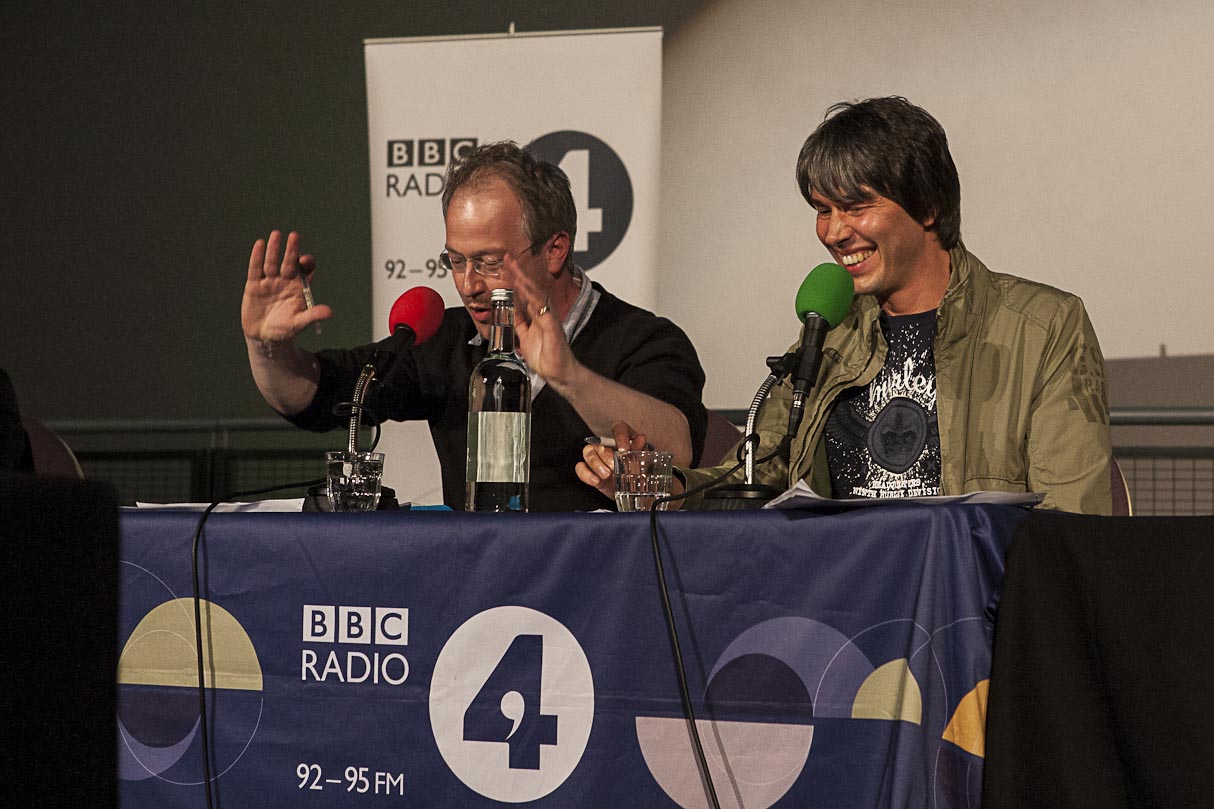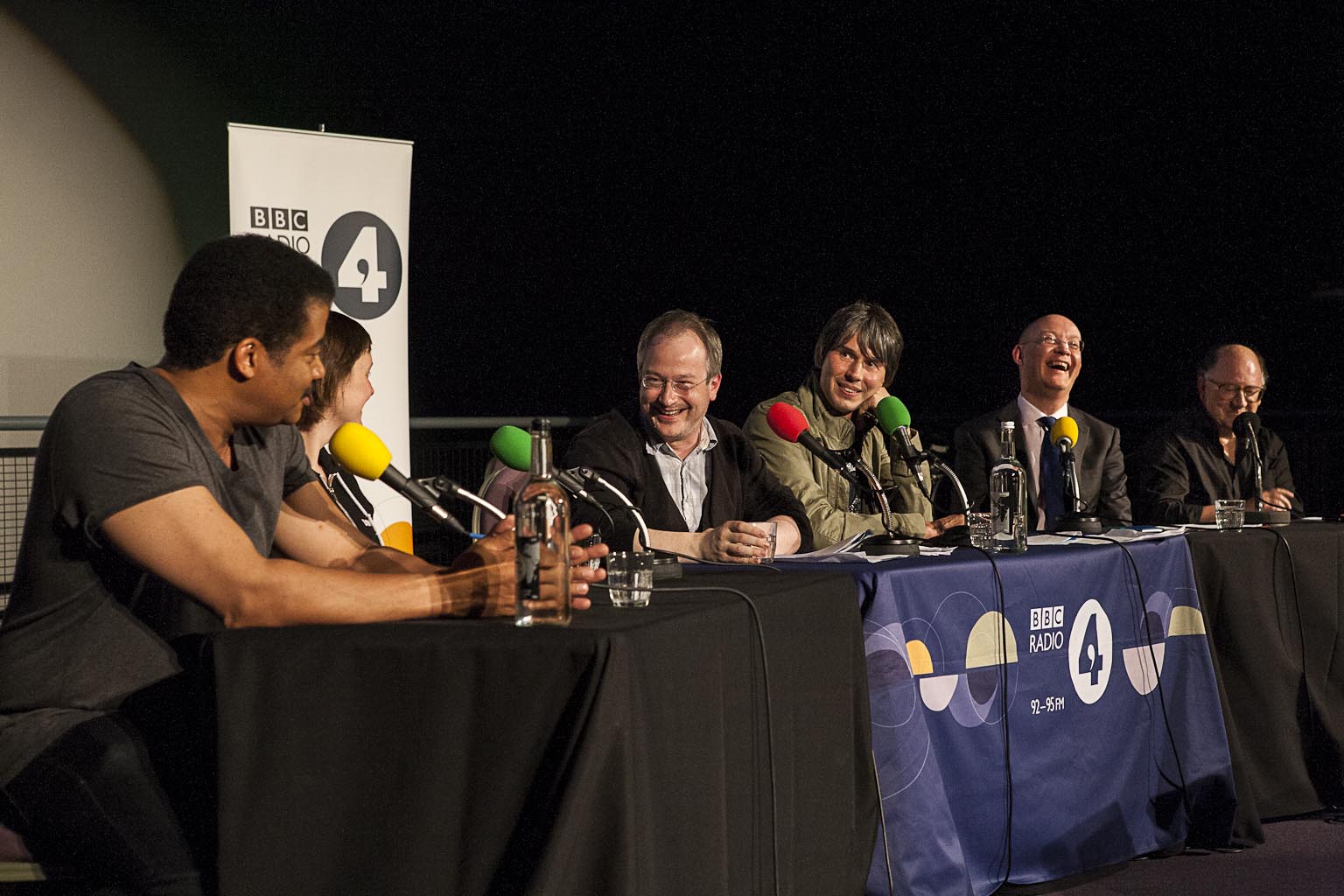Will Stanley writes about the recent recording of BBC Radio 4’s Infinite Monkey Cage in the Science Museum’s IMAX theatre.
In their favourite episode of the current series, Professor Brian Cox and Robin Ince used the awe and wonder of science as their inspiration, discussing why all children have it and the reasons many adults don’t. And the venue for this recording? Well, it had to be the home of human ingenuity, the Science Museum.

Guests on this special edition of BBC Radio 4’s witty, irreverent take on the scientific world included author and historian Richard Holmes, comedian Josie Long, American astrophysicist and science communicator Neil deGrasse Tyson, and the Museum’s Director Ian Blatchford.
Ian explained that one reason that children love the Science Museum is because it is brimming with stories and old things; a refreshingly different thing to hear in the digital age. “We’re working on a project to show the history of communications, and when you show young people a telephone exchange or even a dial telephone, they are amazed by that.”
Comedian Josie Long “took it out on chemistry”, burning her notes after finishing exams in protest at not being able to study her favourite art subjects. After historian Richard Holmes described building a “magnesium bomb” in chemistry classes, Brian Cox exclaimed, “They are dangerous these arts people, because they were prevented from being scientists at a young age.”

Venturing safely back to the eighteenth century, Richard Holmes, author of the Age of Wonder, described his re-discovery of science when researching how Samuel Taylor Coleridge and Humphry Davy, a poet and a scientist, had worked together on Nitrous oxide experiments.
Questioned about whether we are losing our childlike wonder in the twenty first century, Neil deGrasse Tyson – a modern day Carl Sagan, known for his answer to the most astounding fact about the Universe – said that “a scientist is simply a child who never grew up, because they still wonder.”
The extended version of the show, featuring the wooden balls of pioneering chemist John Dalton, a coil of wire demonstrating how Michael Faraday tamed electrons and other remarkable objects from the Science Museum collection, can be downloaded here as a podcast.
Asked about their ultimate museum objects, the panel’s choices ranged from objects that are bigger than you are, to a working time machine and the Holy Grail.
Finally, comedian and rap artist Doc Brown closed Infinite Monkey Cage with this special tribute to his – in fact almost everyone’s – childhood hero, Sir David Attenborough.